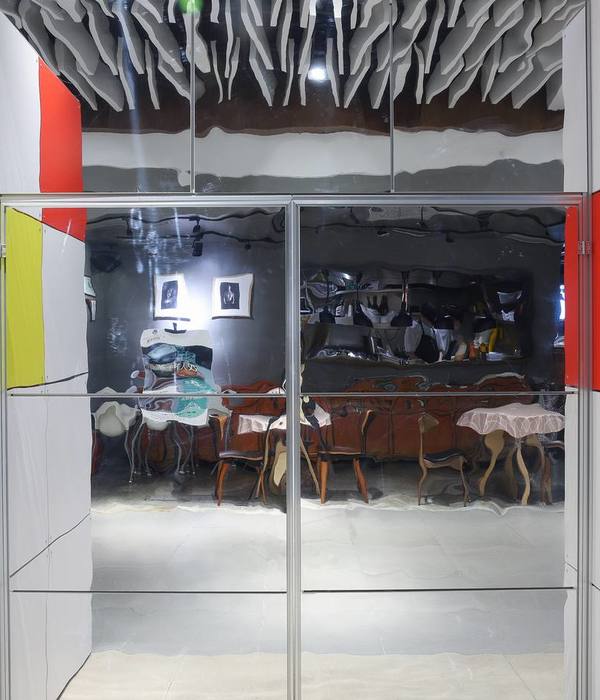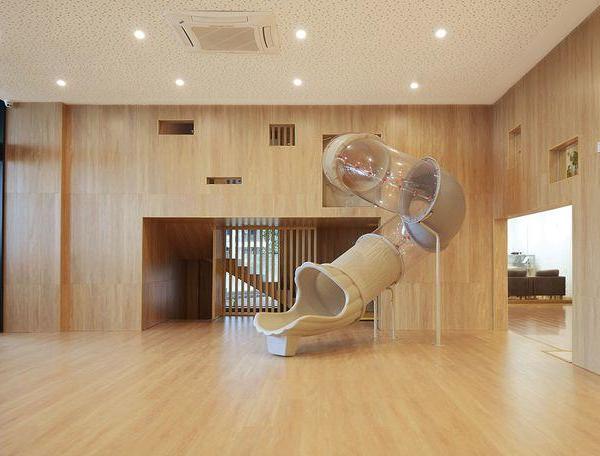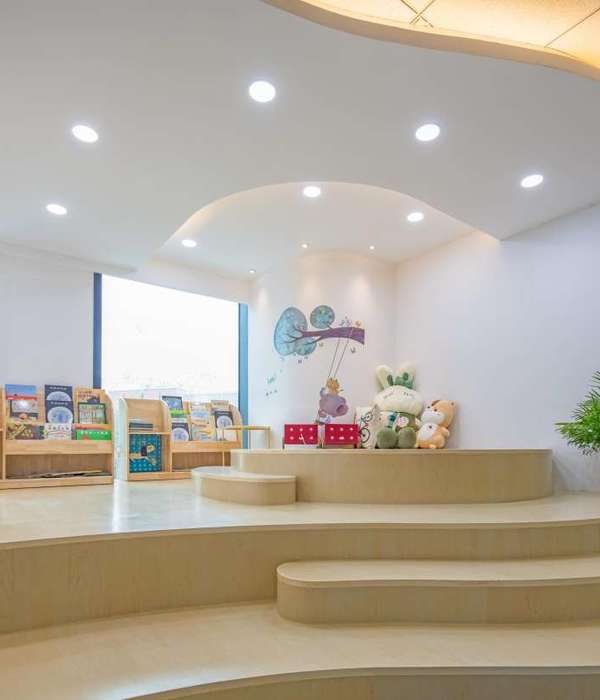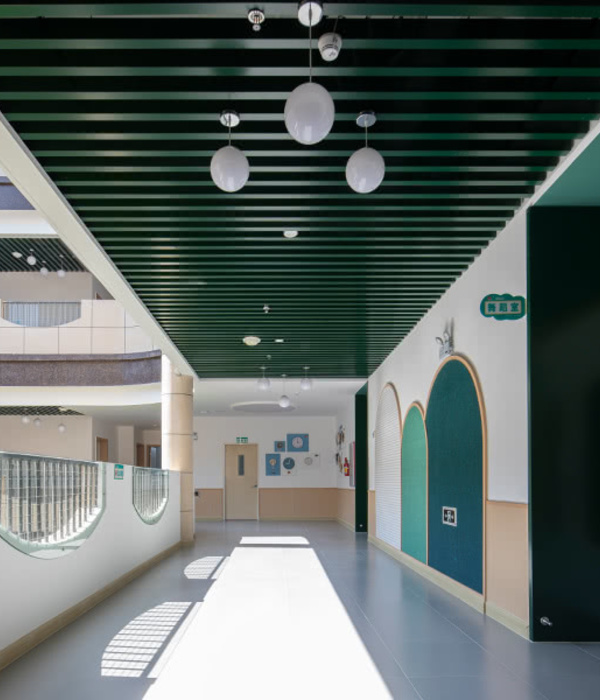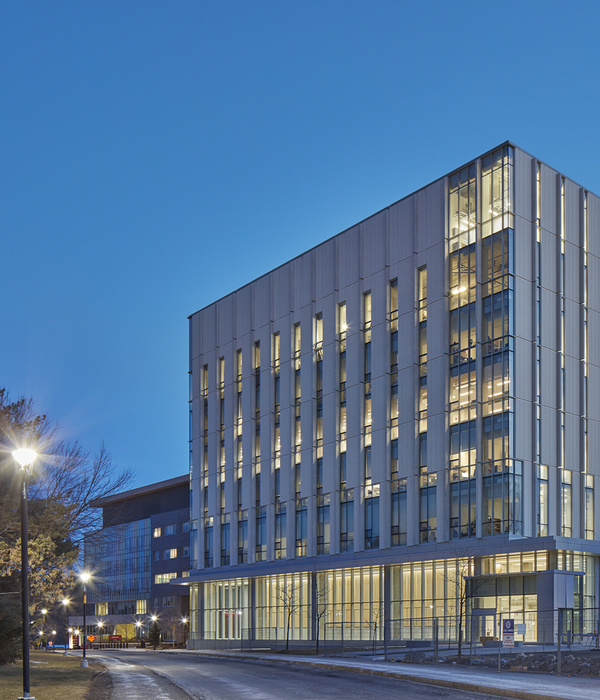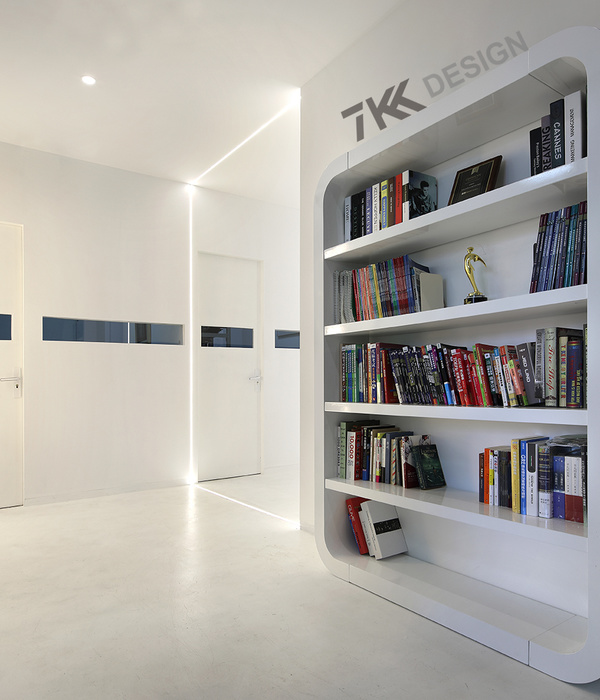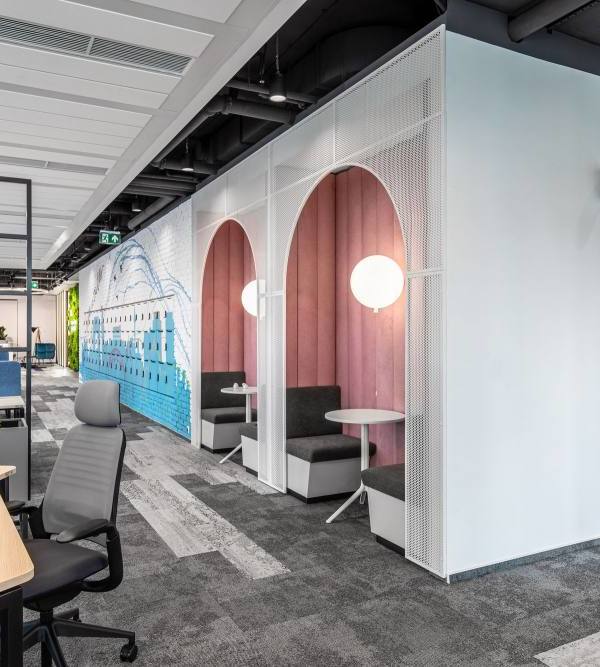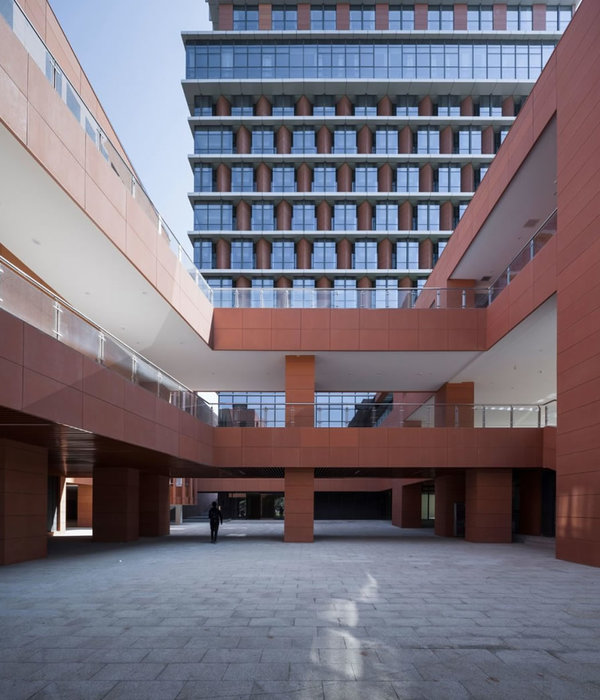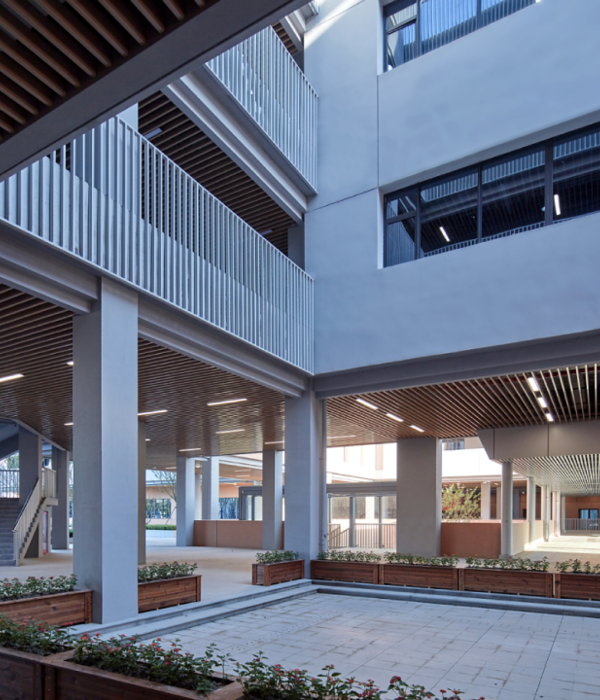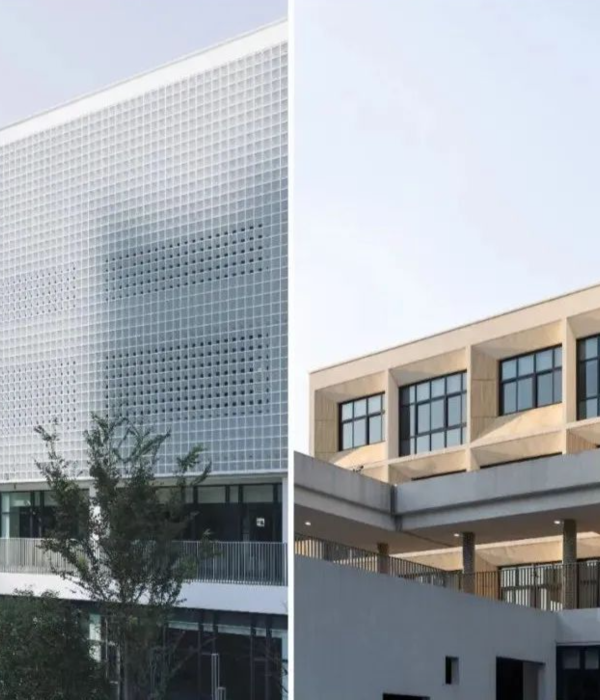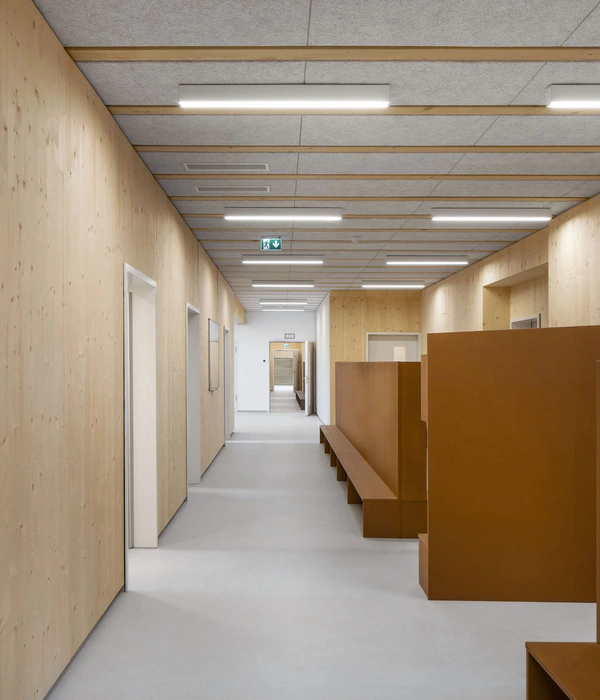© Taku Hibino / HIBINOSEKKEI - Youji no Shiro
c Taku Hibino/HIBINOSEKEI-Youji no Shiro
架构师提供的文本描述。我们在5年前设计并完成了这一项目,业主再次咨询我们,“在学校里建立一个地区,让孩子们通过角色扮演来发展他们的创造力”。
Text description provided by the architects. The owner, whose project we designed and completed 5 years ago, consulted us again to " build an area in the school where children can develop their creativity through role playing".
Floor Plan
在理解了这个要求之后,我们想要摆脱已经存在的玩具和幼儿园类型,并设计出与我们的信念同步的空间,即“当孩子们扮演角色时,他们尝试模仿成年人。”坚持这个想法,我们决定在现有的建筑里设计一个迷你房子,孩子们可以在那里模仿他们的父母和他们的真实世界的活动。
After understanding the requirement, we wanted to break away from the already existing toys and playground kindergarten typology, and to design the space in sync with our belief that "when children role play, they try imitating adults." Sticking around this notion we decided to design one mini house within the existing building, where children can imitate their parents and their real world activities.
结果,这个“Ouchi”建成了。
As a result, this “Ouchi” was built.
*Ouchi,这在日语中意味着“House”。
*Ouchi, this meaning that “House” in Japanese.
© Taku Hibino / HIBINOSEKKEI - Youji no Shiro
c Taku Hibino/HIBINOSEKEI-Youji no Shiro
"欧奇",包括厨房、桌子、洗衣房、木制火炉等。厨房还设有炒锅、叉、刀、勺、杯、烤面包机、电饭煲、菜板、锅、冰箱等食品
"Ouchi", includes a kitchen, table, laundry, wood stove, etc. The kitchen is further equipped with frying pans, forks, knives, spoons, cups, toaster, rice cooker, chopping board, pots, and also the refrigerator to store food
© Taku Hibino / HIBINOSEKKEI - Youji no Shiro
c Taku Hibino/HIBINOSEKEI-Youji no Shiro
孩子们可以用各种原料做一顿饭,用鲜花装饰桌子,还可以在就餐时安排菜肴。饭后,孩子们也可以在水槽里洗碗和洗碗。他们可能在寒冷的时候打开暖气,在阳光下在露台吃东西。他们可以把衣服放进洗衣机里,然后保存起来晾干。
Children may enact their mothers, by making a meal from various ingredients, decorating the table with flowers, and also arranging dishes while dining. After the meal, children may also clean and wash dishes in the sink. They may turn on the heater during cold, and eat at the terrace when sunny. They can put clothes into the washing machine and then also keep it for drying.
这是一个通过各种角色扮演活动培养儿童创新和想象力的地方。此外,我们还在施工期间带着孩子们到现场,让他们亲身感受到木匠的工作经历。通过这一点,我们正在挑战传统的方法,并创造机会,通过保持儿童与成人工作的密切联系,增加儿童探索和好奇心的可能性。
© Taku Hibino / HIBINOSEKKEI - Youji no Shiro
c Taku Hibino/HIBINOSEKEI-Youji no Shiro
现有的玩具及游乐场设备是为配合产品责任法例而生产的,因此对顾客的保安及汤匙式的指引审慎行事,令儿童的创造力和好奇心受到抑制,使事情变得清晰明了,从而消除探索的可能性。为了更好地处理这种情况,我们的设计是基于这个基本的概念,在这个概念中,孩子们可以不断地创造挑战和成长。
The existing toys and playground equipment are produced to cope with the law of Product Liability, and hence fashioned cautiously towards customer security and spoon fed guidance. This inhibits the creativity and curiosity amongst children, by making things straight and clear and hence eradicating the possibility of exploration. To handle the situation well, our design is based on this essential concept, where children could continuously create challenge and grow.
© Taku Hibino / HIBINOSEKKEI - Youji no Shiro
c Taku Hibino/HIBINOSEKEI-Youji no Shiro
要完成这一概念,就必须允许儿童在这里充分自由地进行探索,并减少教师的直接干预。主人对此有很好的理解,因此可以从远处密切关注孩子们。因此,我们有这样的场景:孩子们不断地创造和挑战,脸上带着灿烂的微笑。我们期待着他们为自己创造的未来。
To complete this concept, its essential to allow children to explore in here with full freedom and less direct interference from the teachers. The owner understands this well and hence keeps an eye on children from a distance. As a result, we have the scenes where children continuously create and challenge with wonderful smiles on their face. We are looking forward to the future they will make for themselves.
© Taku Hibino / HIBINOSEKKEI - Youji no Shiro
c Taku Hibino/HIBINOSEKEI-Youji no Shiro
Architects HIBINOSEKKEI + Youji no Shiro, Kids Design Labo
Location Saga, Saga Prefecture, Japan
Category Kindergarten
Area 15.0 m2
Project Year 2017
Photographs Taku Hibino / HIBINOSEKKEI - Youji no Shiro
{{item.text_origin}}

